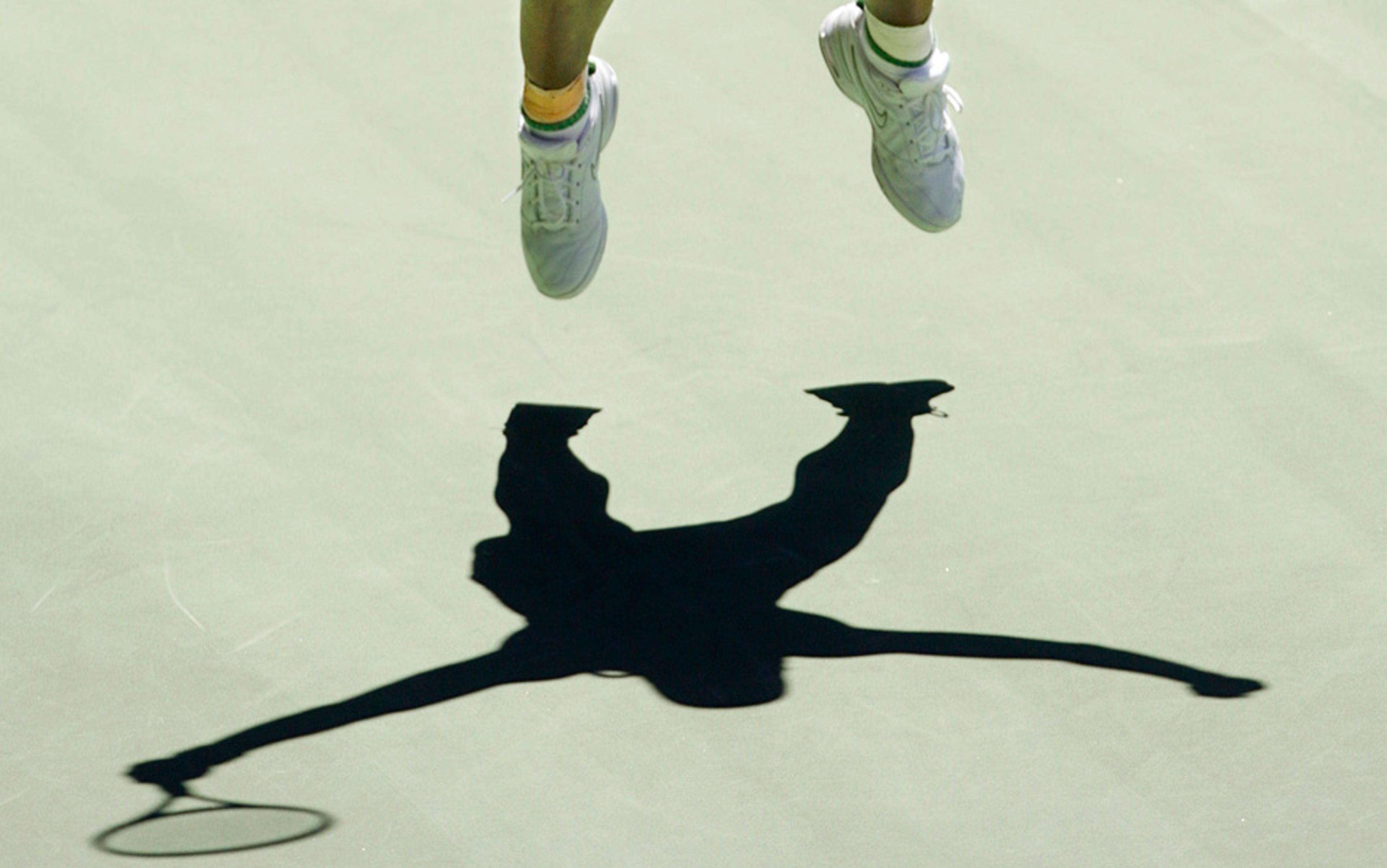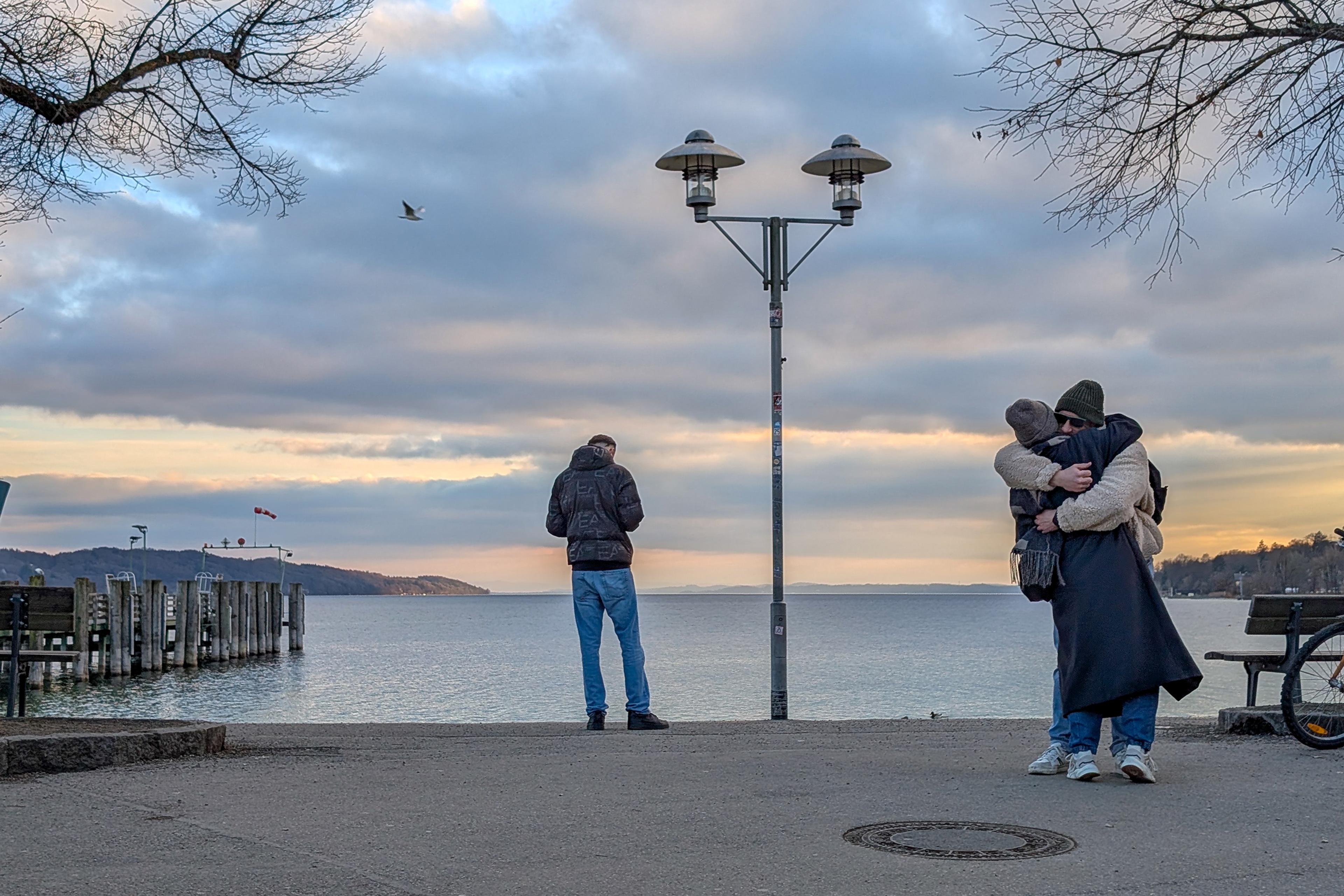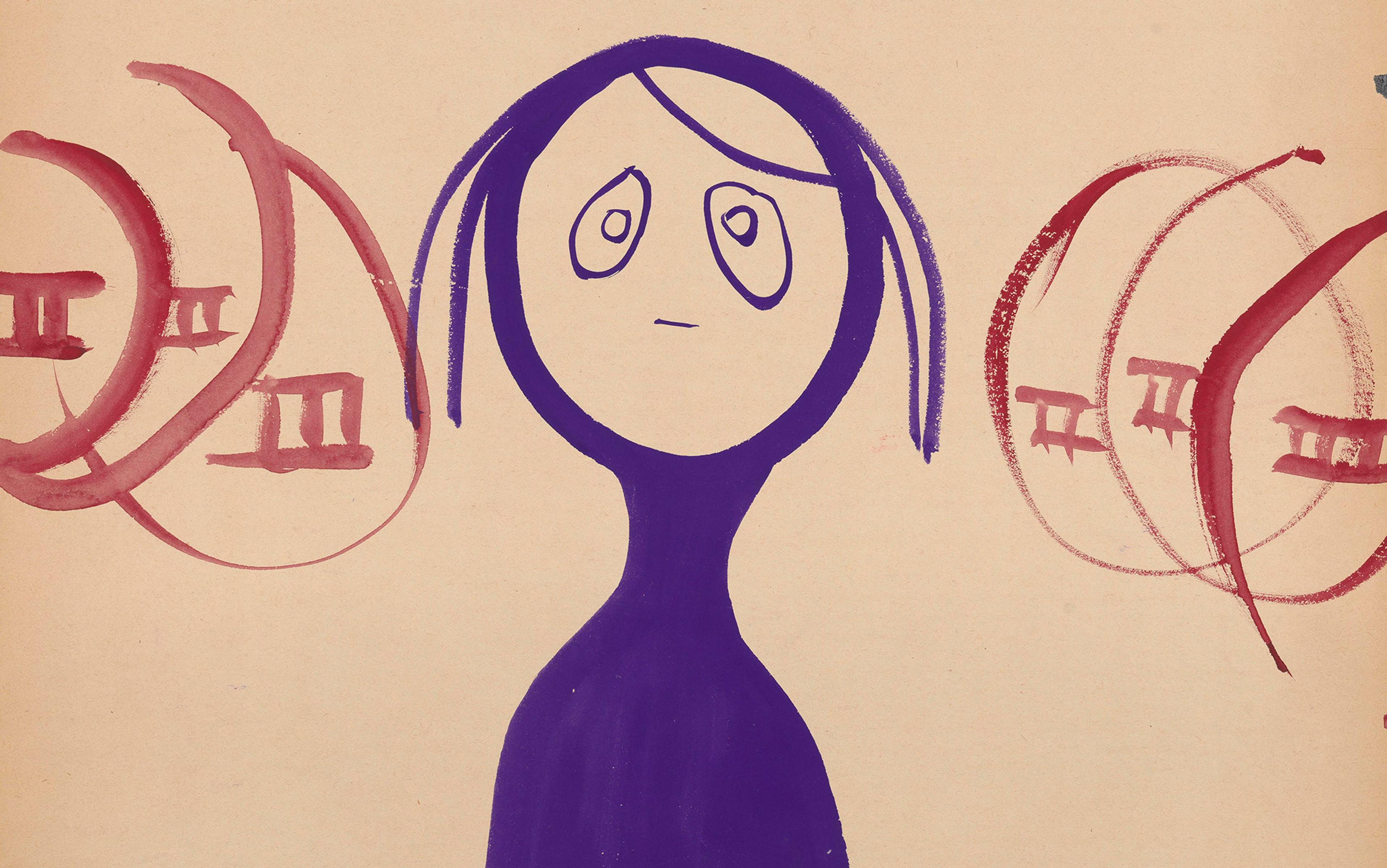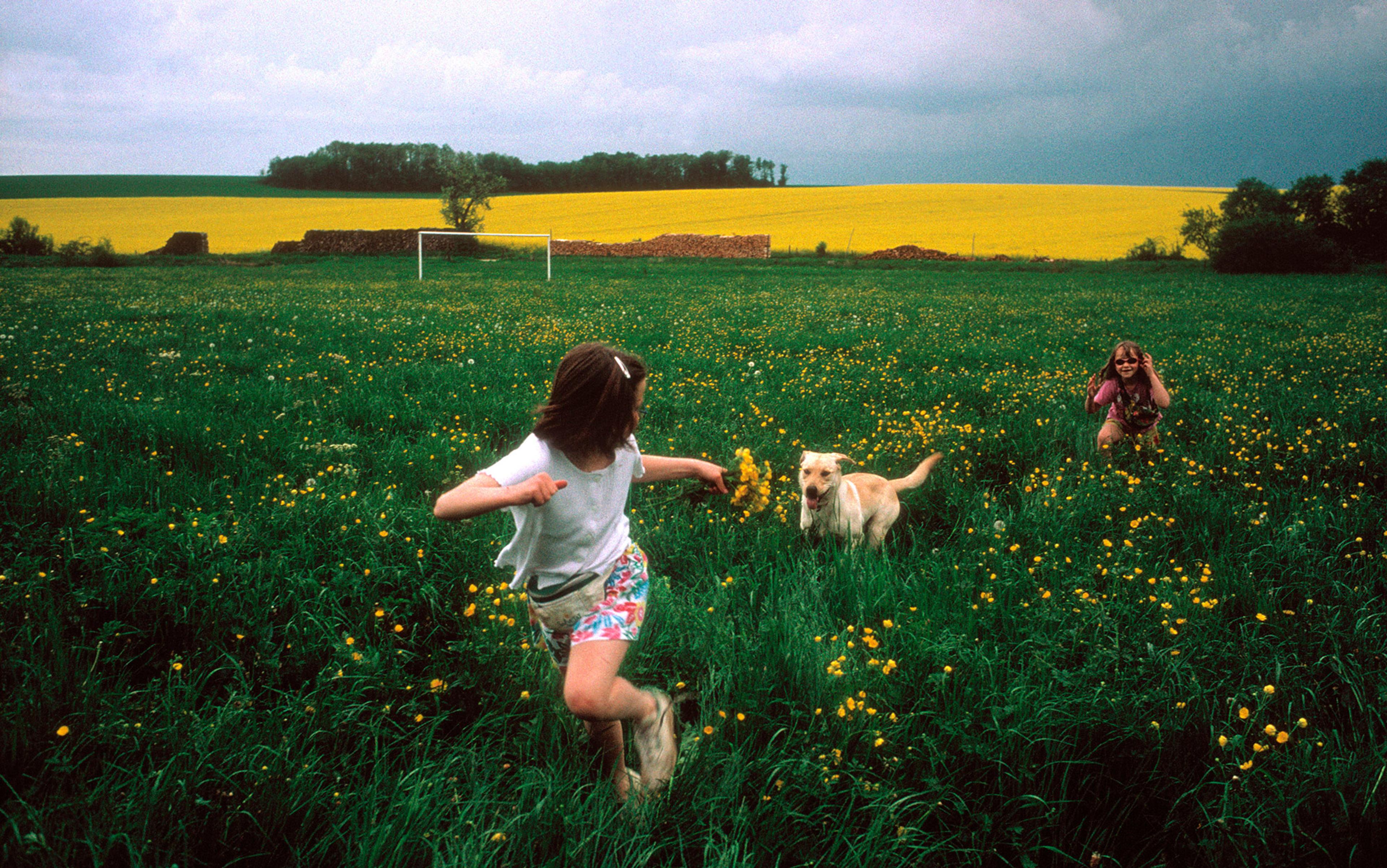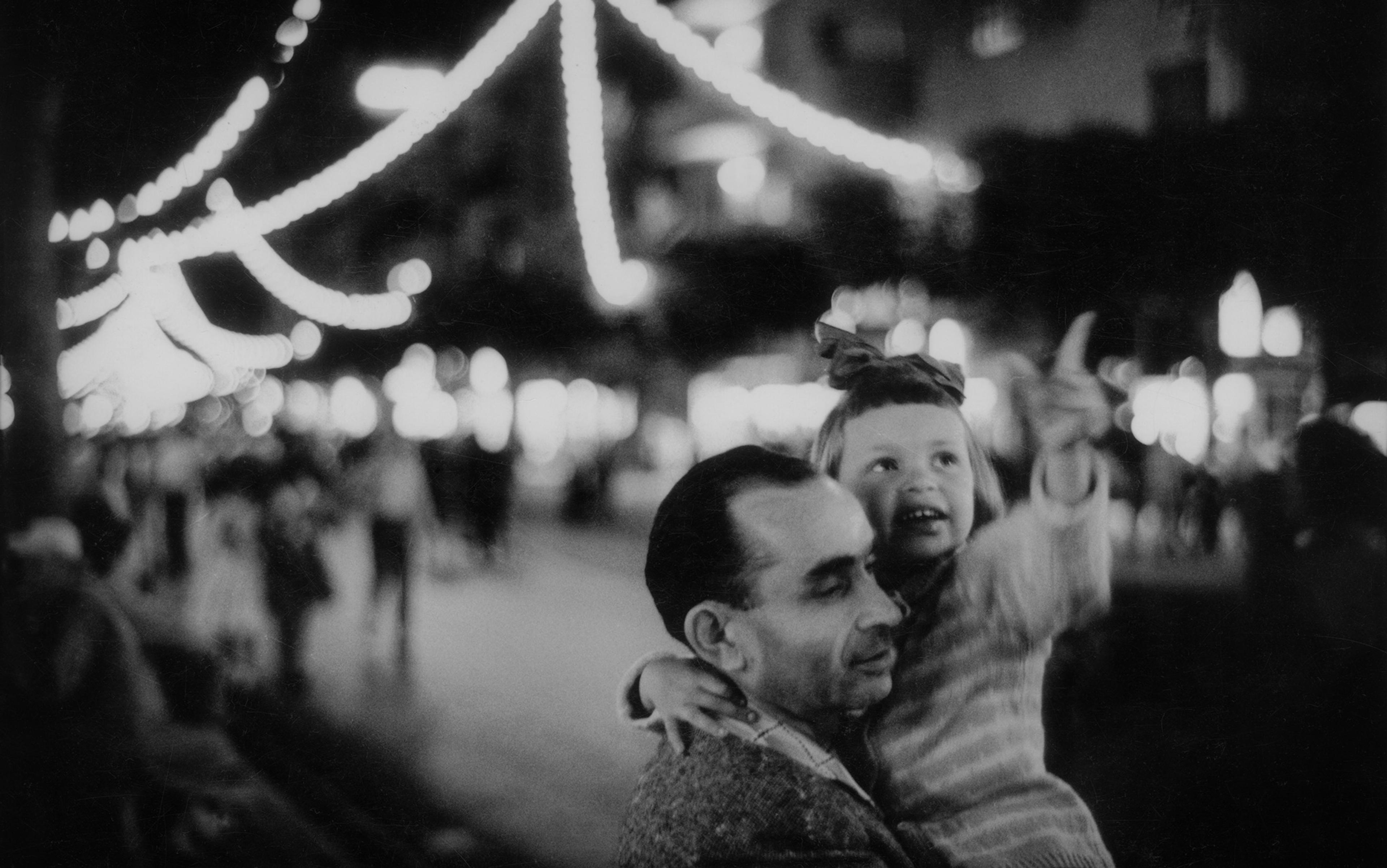In one of his letters to the Corinthians, St Paul takes a firm line on what it means to be an adult: ‘When I was a child, I spoke as a child, I understood as a child, I thought as a child. But when I became a man I put away childish things.’ Lately, I’ve wondered more and more whether he was right as events have taken a somewhat different turn for me. My second childhood was kindly delivered to me by my children. This, I suspect, was no coincidence. Children know something that adults have forgotten — something adults have to forget when they begin playing the great game of growing up and becoming someone.
It started with the running. I had run for most of my adult life, but when I became a father, this activity took on a new regularity, intensity, and perhaps desperate ferocity. This, I suppose, was not entirely unexpected. Compared with spending three hours with two boys, both below the age five — which, don’t misunderstand me, I love doing — running 20 miles is a relaxing break. But running was just the beginning.
My older son, four years old at the time, was getting bullied at school. The advice of his parents diverged. One of us told him not hit the bully back, but to tell the teacher. The other (the rather less enlightened one) told him to hit the bully back but not to tell the teacher. The poor boy took the worst of both worlds, reporting to his teacher: ‘I hit him with my fist — just like my daddy showed me!’ On reflection, I decided that a more sober and systematic approach to his self-defence might be required. Off we went to the local martial arts training centre, the dojo. At this point, my son drops out of the story, at least for the rest of the paragraph. He liked karate well enough, but I was absolutely entranced. Martial arts, in various forms, were something that I had done as a boy, and as a young man. But now, staring down the barrel of 50, I just couldn’t resist a new immersion. There were some bumps in the road, naturally. A few weeks in, I ruptured my Achilles tendon — a partial tear. It was, as are most things, my fault. My sparring against a 24-year-old black belt was going as well as could be hoped. In the grip of an ill-advised exuberance, I decided to insert an ‘Ali shuffle’ into the proceedings. Snap: I was assaulted by gravity, which doesn’t seem to like me anywhere near as much as it once did. And even then I couldn’t stay away, limping my way through class as my Achilles tendon slowly healed.
Whenever we do something only for the sake of something else, we are working — even if we receive no financial reward
During my recuperation, I would find myself gazing longingly at the tennis courts in the park across the street. Tennis, too, had been a game of my childhood, and the people playing seemed to be having so much fun. How could I resist? I did what any father in the grip of an incipient second childhood would do: I marched my sons — both of them this time — down to the nearest tennis school and insisted they have lessons, whether they wanted to or not. They liked tennis well enough. But I was … well you see the pattern.
And so my week has become a patchwork of athletic activities. I run most days, and try to fit in a marathon when I can. I go to the dojo three days a week (and I bought a heavy bag to hit on the off days). I play tennis as often as I can. A few years ago, I was a confirmed couch potato. But now my life has taken on the general contours of the life of my childhood — a life that I thought had disappeared with the snows of yesteryear. What’s behind all this?
Today’s world is a deeply utilitarian one, where everything must have a use or be ‘good for something’. Our lives are dominated by work and, unless we have been extraordinarily lucky, we work not because we particularly enjoy it but to get paid — payment that keeps us and our loved ones alive for a while and, if there is anything left over, allows us to do something more interesting than the work. Our lives are spent, largely, doing one thing for the sake of something else, which is in turn done for something else.
This is a kind of instrumental thinking. Something has instrumental value if its worth lies not in itself but in something else that it can get you. Money or medicine are good examples. Their value lies not in themselves but in what they can buy or the health they can restore. Money and medicine are not activities but things. Activities, however, can also have instrumental value. Work is the classic example. We work because we want to be paid or rewarded with status. As the German philosopher and physicist Moritz Schlick said, whenever we do something only for the sake of something else, we are, in effect, working — even if we receive no financial reward. Most of our adult lives are taken up with work in this broad sense.
Naturally, it’s tempting to explain the value of the activities of one’s second childhood in terms of this general template of their usefulness, their contribution to our other goals. Running keeps you healthy, happy, or even alive. Tennis ditto — and don’t forget the numerous social opportunities both afford. Martial arts are often portrayed as good — that is useful — because they breed discipline, confidence, and other virtues of that ilk. Not that these claims are false. Far from it. Not only are they sometimes true, they can also be distinctly useful — for example, in convincing a sceptical partner: ‘Just think of what it’s doing for my heart.’ Astride my dangerous heart attack years as I am, there really is no comeback when I play the ‘good for the heart’ card.
But it’s a rationalisation. I am not, in fact, running because of its beneficial effect on my heart, health, or happiness: not really. Nor am I doing karate because I care inordinately about the virtues of discipline or self-confidence.
The idea that we can explain the value of the activities of second childhood in terms merely of their usefulness is to assume that their value is instrumental. That is, we justify doing them because of the things we get: health, happiness, confidence, and discipline. Unwittingly, these arguments for sport and exercise assimilate those activities into the broad category of work. And that is to completely misunderstand the second childhood.
The grim alternative is that satisfaction is always deferred, always just around the corner
It might be that most of the things we do in life we do for the sake of something else. But there are still some things we do just to do them — for their own sake and not for the sake of anything else. If the former category is work, then the latter category is play. Work is activity directed at an external goal. Play is activity whose goal is internal or intrinsic to it. In its pure form, play has no external purpose or reward. We play just to play. When my sons’ volleys have been sufficiently consistent and accurate, their tennis coach will instigate a game. He yells, ‘Fruit basket!’ and lobs several balls into the air in quick succession. They have to drop their rackets, run and catch the balls before they stop bouncing. This is done amid much cackling and squeals of delight on their part — almost as if the rest of their lesson was work aimed at unleashing this bout of play. I love watching this, because I cannot imagine a purer form of play. There is no external goal or purpose. My sons do it simply because at that precise moment in time — and the squeals of delight are testament to this — there is nothing in the world they would rather be doing. To play is to dedicate oneself cheerfully to the deed and not to any external goal; to the activity itself and not the outcome.
We had better hope there is something in our lives that at least bears some resemblance to this. A life that is taken up with work and nothing else is a life where everything is done for the sake of something else. Value is never found in the here and now. The things that have value lie always just a little further down the road. Such a life would resemble the punishment of Tantalus: condemned to stand in a pool of water, underneath branches of fruit. Whenever he stooped to drink, the water would recede. Whenever he attempted to pluck the fruit, the branches would pull away from him.
Aristotle first identified the problem. Suppose your life is made up of things you do for the sake of something else — you do A in order to get B, and you do B only to get C, and so on. Therefore A has no value in itself; its value lies in the B. But B has no value in itself: that value lies in the C. Perhaps we eventually encounter something — call it Z — that’s valuable for what it is in itself, and not for anything else. The grim alternative is that we encounter no such thing and satisfaction is always deferred, always just around the corner (indeed many would argue that this is the treadmill of consumerism). If our lives are to mean anything, there must be something that’s valuable for what it is in itself and not for anything else it might get you. This, in the parlance of philosophers, is called intrinsic value. Most obviously, we should be able to find intrinsic value in the other people in our lives. If we focus just on our activities — on what we do — then it is clear that it will not be found in work (in my sense above, of things we do for something else) but only in play. It is play, and not work, that gives value to our lives.
Anyone who has run, or engaged in martial arts or tennis — anyone who has played — with a certain level of ferocious commitment, will know that these things are not ‘fun’ in any simple sense of that term. Pleasure, fun, and enjoyment are not goals of these activities. Sometimes they are there, sometimes they are not: at most, they complete the activity, as Aristotle once put it. The significance of this kind of serious play is that it leads to certain moments when all the points and purposes — all the external goals — of life briefly come to an end. There comes a point during a long run, perhaps at the limits of my endurance, when I am no longer running for any reason other than to run. There comes a point in karate — perhaps when I am in the middle of a kata, and each movement flows thoughtlessly and seamlessly into the next — when I am no longer acting for reasons, but acting without them. There is a point in tennis, when I thrust aside as irrelevant all thoughts of point and games and sets, and am absorbed instead in the sheer and savage delight of swinging at a moving target. These are all moments when the endless round of doing one thing for the sake of another comes to an end — however briefly. In these moments, I am acquainted with what is worth doing for its own sake. In these moments, I experience intrinsic value in my life.
The idea of intrinsic value is the contemporary expression of a much older idea. Plato developed a comprehensive account of reality, and at the apex of this account lay what he called the form of the good. The form of the good is goodness itself — good for what it is in itself and not for anything else it might yield. According to Plato, the form of the good is the most important and real thing there is, but it lies beyond the physical world, in an ideal world of forms. Plato thought we could understand the good but our access to it was highly intellectual. One had to study mathematics and philosophy for many years — preferably with him. I propose that we take Plato’s idea of the form of the good, but strip it of these metaphysical trappings. Far from belonging to another world of non-physical forms, intrinsic value belongs to this world. It is part of the fabric of things. And in certain forms of play, we are able to experience it directly, rather than to merely theorise about it. It is felt rather than cerebral. Play, in its purest form, is the embodied apprehension of intrinsic value — the form of the good — as it makes itself known in a person’s life.
Children know what is important in life: they know instinctively and effortlessly. For adults, it is hard work
The idea of a second childhood is often portrayed as a time of decline. ‘He has returned to his second childhood,’ one might say, meaning that his intellectual capacities are on the slide — perhaps that he is becoming a little senile. As Schlick also pointed out, we naturally think of childhood as a time of immaturity, a time of preparation for the important part of life that comes later. We often imagine that, if we think hard enough and are skilful enough in our thinking, the meaning of life will one day reveal itself to us, in our maturity. Like Schlick, I suspect this gets things around the wrong way. Children know what is important in life: they know instinctively and effortlessly. For adults, it is hard work. We have to rediscover it all over again. Children understand that the really important things in life are the things that are worth doing for their own sake. And all those other things: they are just unfortunate — inconveniences thrust upon us by an intransigent world. We all knew this once, but we forgot it because we chose to play a demanding game — the great game of growing up. It is a good game, one of the best. But it is also a jealous and dissembling one: dissembling because it refuses to recognise that it is a game, and jealous because it allows no other games. The ‘return to a second childhood’ is a way of rediscovering this thing that we once knew but had to forget.
My sons will grow up in the blink of an eye and engage in their own great game. I hope I will have had the courage to have imparted to them one piece of advice. There are a lucky few for whom their work is play. What makes something play as opposed to work is not what you do, but why you do it. Even the most mundane work can be transformed into play if you do it just for itself and for no reasons besides — if the financial rewards you accrue are merely incidental bonuses. The most important and most difficult thing in life is to find something that is play for you — something that you would do anyway, just to do it. And then, if you are lucky, find someone who will pay you to do it.
